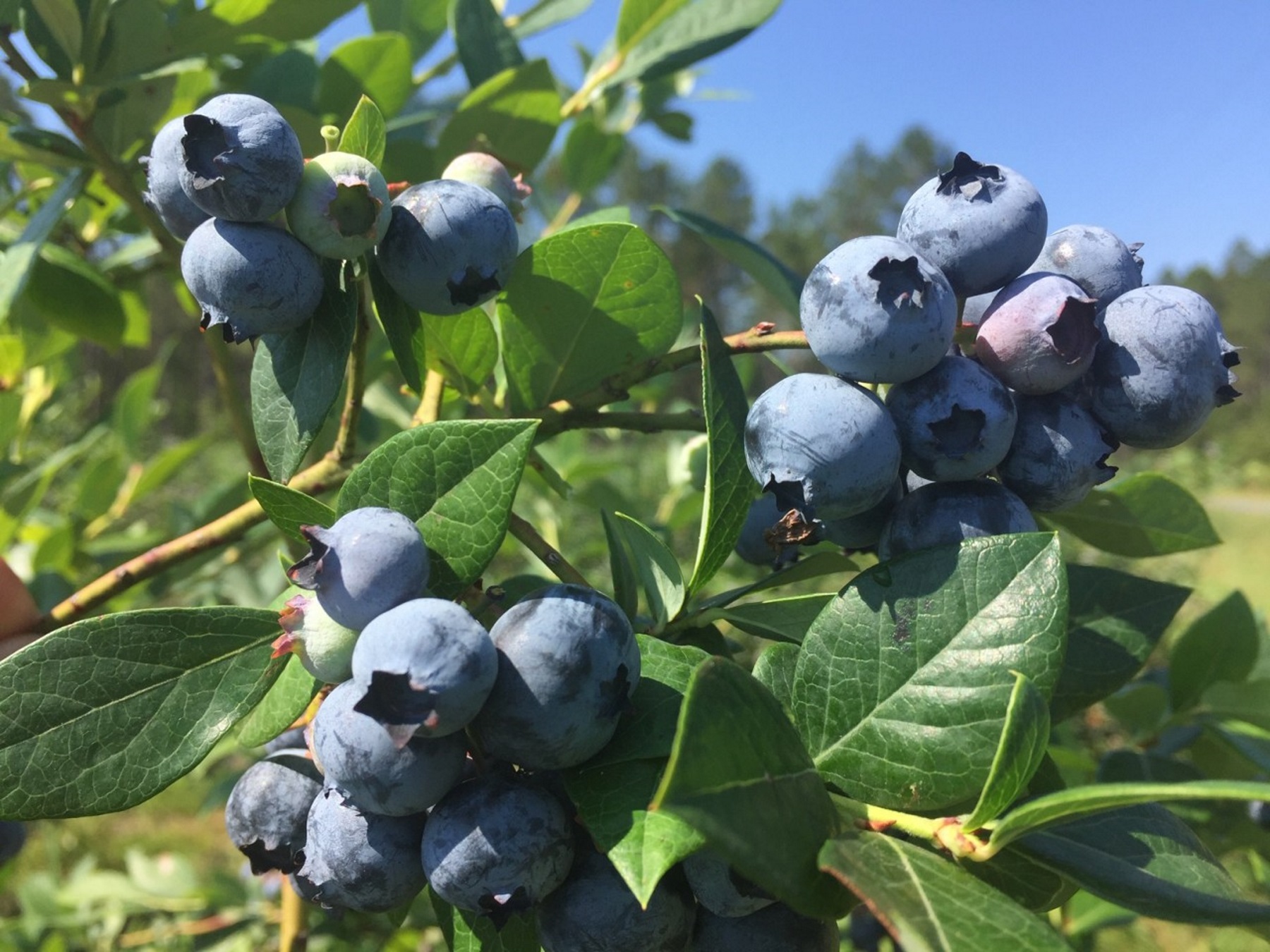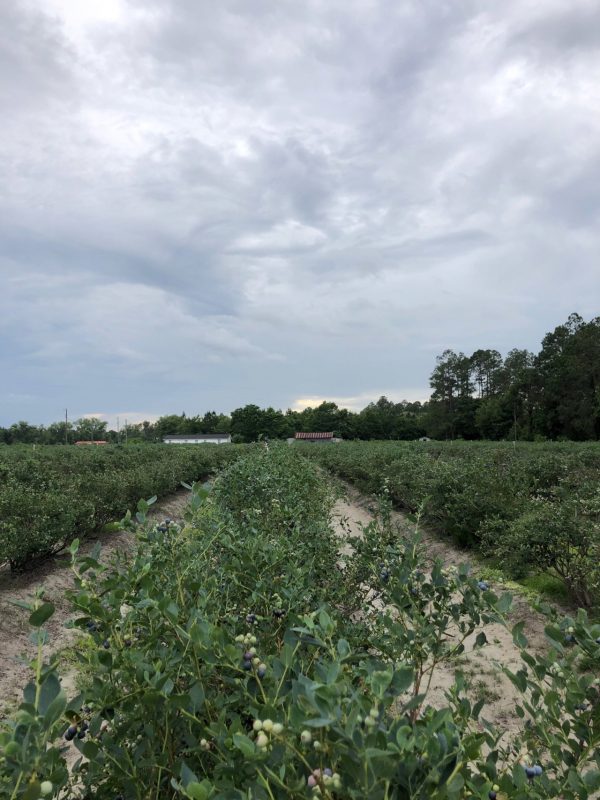New Study Condemns USMCA’s Effects On Georgia Produce Industry

Blueberries are shown at Russ Goodman’s farm in Clinch County. Georgia is the nation’s top blueberry-producing state. But some in the industry worry the new trade agreement with Mexico and Canada will threaten that.
Cogdell Berry Farm
The Trump administration’s new trade agreement with Mexico and Canada could mean major losses for Georgia’s produce industry, according to a new study from the University of Georgia.
The new trade agreement reached last fall with Mexico and Canada, known as the United States-Mexico-Canada Agreement or USMCA, was an effort to improve on NAFTA, but per the study, it could be just as bad as NAFTA for Georgia’s produce industry. In fact, the study predicts, it could cost the state 8,000 jobs and $1 billion in economic output.
The results confirm what Charles Hall, executive director of the Georgia Fruit and Vegetable Growers Association, has been saying: “It will be the devastation of the produce industry in the Southeast.”
“It’s no worse than NAFTA, but NAFTA has gotten terribly bad for us,” he said.
Produce is Georgia’s No. 2 crop and a $1.5 billion industry. But it’s struggling with subsidized competition from Mexico.
For example, Hall said, Mexican squash can sell for $4.50 a box, while Georgia’s costs $14.
“We can’t grow squash for $4.50 a box,” he said. “I don’t know, evidently they can or they’re just agreeing to lose — maybe they’ve got so much.”
There was big hope that this new deal would help with the problem. But according to Hall and this new study, it will just perpetuate the status quo. Which could make things much worse.
“For a county to lose over 40% of its income, as Clinch [County] and Echols [County] are forecast to experience, is economic damage on the scale of the Great Depression,” wrote the study’s authors, agriculture economists Jeffrey Dorfman, Julian Worley and Sharon Kane.

“I’m not one to cry wolf and I’ve been hesitant to say this is really bad,” said Hall, “but the more we’ve gotten involved with this, the more we have seen what’s happened over the last 12 months, I don’t think Dr. Dorfman’s projections are off. In fact, they may be low. It may happen sooner rather than later.”
“We may not have the industry we’ve got now in five years just because they can’t afford to grow.”
Russ Goodman lives in Clinch County in Homerville. He’s a seventh-generation farmer with blueberries, timber and cattle.
“If you had told me the Trump administration was going to renegotiate NAFTA and we would have an outcome like we’ve had, I would have told you you were crazy,” Goodman said.
He thinks other agriculture sectors may be benefiting from the new deal, but not his blueberries. In fact, he predicts it could be “the death of an industry” and “horrible for South Georgia.”
Georgia is currently the top blueberry-producing state, a title that could be at risk, Hall said.
“I mean it’s un-American to me that we’re going to allow this cheap produce to come in here and put American growers out of business,” Goodman said. “We had so much hope in this renegotiation, that it was going to be able to shore up our industries. We’re not looking to buy Rolls-Royces. We just want to continue the family farm.”
Hall said his group is advising lawmakers to vote against the agreement.
“We’ve been asking the administration and the powers that be for something,” he said. “We continue to hear, ‘We’re working on it.’ But we haven’t had anything.”
The new trade agreement still needs a vote in Congress. The White House had no comment on this report.
Georgia Agriculture Commissioner Gary Black says even if it passes, he hopes politicians “find another solution to ensure this troubling analysis does not come to fruition for our farmers and rural communities.”








